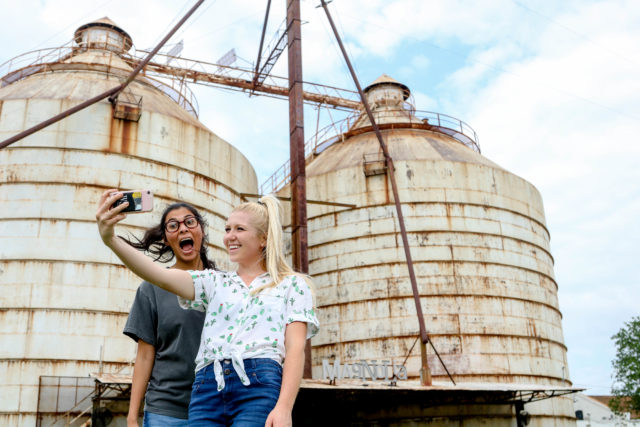By Emma Whitaker | Reporter
Recently, since the Buzzfeed News article “‘Fixer Upper’ is Over, but Waco’s transformation Isn’t” the Baylor community and Wacoans have both positively and negatively responded. The article criticized Magnolia, Antioch Community Church, Waco Tours and other Waco developments.
The article was written by Anne Helen Petersen, a senior culture writer for BuzzFeed News. In the article, she said she has always been impressed with Chip and Joanna Gaines’ home renovating dynasty, which she witnessed through the HGTV show Fixer Upper (2013-2018).
Petersen said Waco is more than what meets the eye on public television. She also said she noticed there is an issue of gentrification, which is renovating or rebuilding a community so that it conforms to middle-class, in Waco.
“There is, after all, a Waco that you don’t see on ‘Fixer Upper’ — a Waco that’s over 21% black, over 32% Latino and where 26.8% of the city lives beneath the poverty line,” Peterson said in the article.
While some people in the Baylor community don’t agree with Petersen’s arguments, Colorado Springs junior Megan Peck, who works for Waco Tours, agrees with the writer.
“Often I feel like there is a white savior mentality here in Waco. This idea that a neighborhood is struggling until the white comes with big business and makes the place oh so much better,” Peck said.
Petersen says the growth of Magnolia has resulted in gentrification within Waco because the leadership roles within Waco community come from Antioch Community Church, where the Gaines family attends. However, Dr. Charles Ramsey, Baylor Baptist student ministries director, said the article seemed unfair to Antioch.
“Antioch seems to have more blending than most churches within the Waco area. I have seen the pastoral staff. One of the senior pastors is African American, Vincent Carpenter. One of their college pastors, Olayinka Obasanya, is African American. They have a female pastor, Madison Echols. They are doing a lot better than so many other churches at blending within their actual leadership within the congregation,” Ramsey said.
On the other hand, Peck said she stands by Petersen and challenges churches like Antioch and other organizations to make diversity not just a priority, but the priority.
“It’s pretty obvious that Waco is segregated. I’m always surprised by people that slap my shoulder and congratulate me for caring about ‘social justice.’ Do you not read the Bible? Jesus equals justice. You can’t say you love Jesus and not have justice on the top of your priorities. Justice is literally his heart,” Peck said.
The article also dives into the poverty gap between Baylor’s side of the river and East Waco. Petersen interviewed Andrea Barefield, the Waco City Council Member who represents a district that includes East Waco. Barefield is quoted in the article saying she found that the business development is often owned by white men.
“No one’s saying don’t grow, but you have to do it intentionally and thoughtfully — and through a lens that acknowledges the layers of systemic racism that led us to this moment. How the government controlled which types of people got access to houses, to business ownership, to everything. You have to unpack all that, understand all that. And don’t be offended if I don’t trust you,” Barefield says in the article.
Cairo junior Dareen Habashy said she doesn’t find the article helpful in solving these types of problems in Waco. She said she has many friends who anguish over the issue of diversity within Antioch, but the article vilifies people, which causes people to become defensive, instead of actually creating meaningful conversations.
“I don’t know if anything beneficial will come from the article,” Habashy said, “With things involving the church, many people need to realize these kind of issues on their own terms. It affects people in a deep way that you can’t simply understand from an article.”
However, students like Peck believe the article started a good conversation. Peck said she wants to formally apologize to the people in Waco because of the hurt that could be caused from the church.
“Church communities don’t realize the part they often play in enabling racism. Just because you’re not adamantly being racist, doesn’t mean you’re fighting it either,” Peck said.



